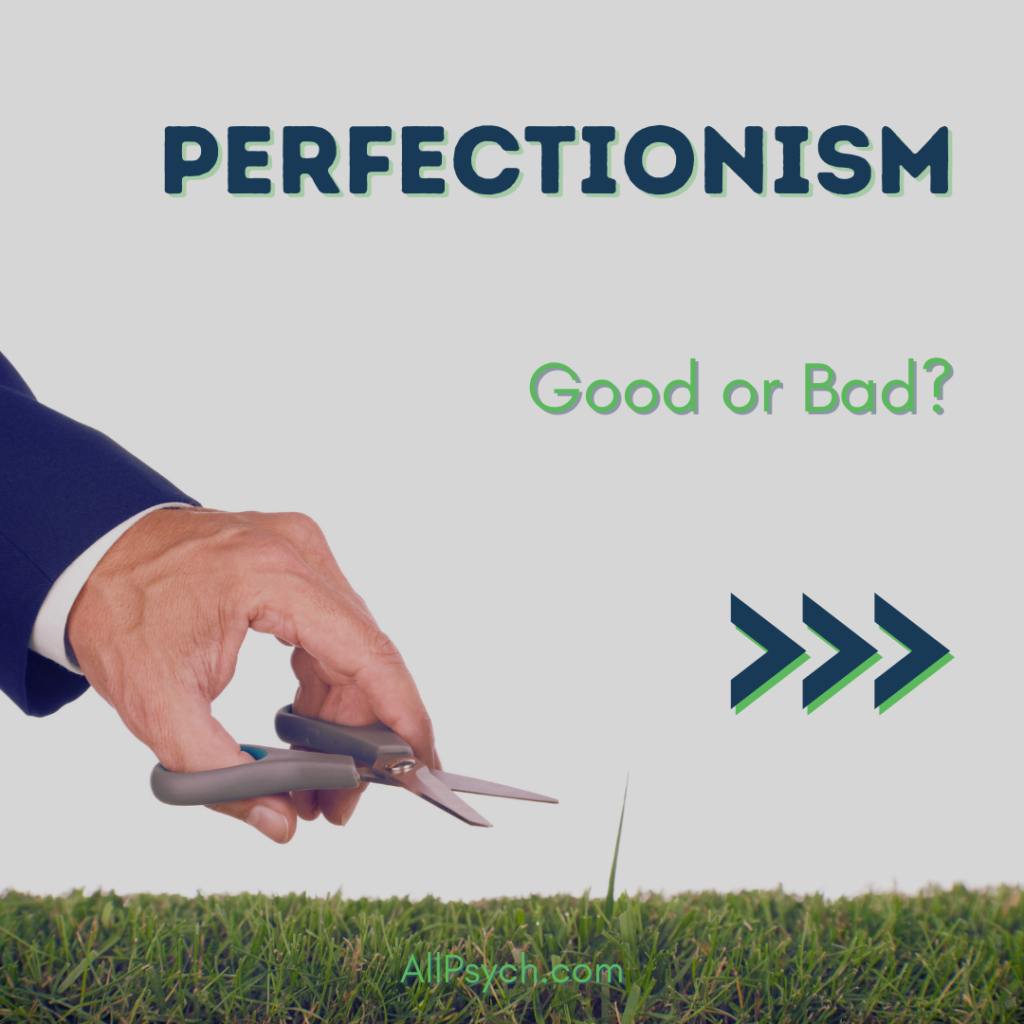
Being a Perfectionist Doesn’t Have to be a Negative
Being a perfectionist gets a bad rap. It is associated with negative outcomes, anxiety and stress. This isn't because perfectionism is bad, but rather the way we approach it is bad.
 Hurtful Perfectionism
Hurtful Perfectionism
Perfectionism is a striving, meaning it is about constant forward movement. This means it is about finding solutions and moving toward the future.
Unfortunately, many of us view perfectionism as being about past failures rather than potential successes. Perfectionistic Concern is the term used for this view. It involves worry about past failures and an inability to meet goals because they are unrealistic and/or we doubt our ability to achieve them.
Perfectionism, when approached from this deficit-based lens can lead to psychological issues like insomnia and binge eating. And to make things worse, a study by Dang et.al (2020) from the journal Clinical Psychology and Psychotherapy, found that those with more perfectionistic views were less likely to seek psychological help. It seems this hesitancy is related to the Perfectionistic Concern approach. Abdollahi et al (2017) found that "high school students with high levels of socially prescribed perfectionism, high levels of self-concealment, and low levels of self-oriented perfectionism reported negative attitudes toward seeking psychological help."
From a Cognitive-Behavior perspective, you have a choice in what goals you set for yourself, what you do to move toward them, and how you process successes and failures. This means you can also change the way you approach perfectionism. Zanchetta et al. (2020) found an intervention that counters this Perfectionistic Concern.
Helpful Perfectionism
 Maslow said that no one will ever be self-actualized, but we should always work toward it. One could easily argue that perfectionists will never be perfect but should always be working toward self-improvement.
Maslow said that no one will ever be self-actualized, but we should always work toward it. One could easily argue that perfectionists will never be perfect but should always be working toward self-improvement.
The difference between a successful perfectionist and a struggling one is that the successful perfectionist sets challenging and realistic goals and then works to move in their direction. The unsuccessful perfectionist sets unrealistically high goals, or worries about unmet goals or expectations, and fails to move forward.
Perfectionistic Striving (Zanchetta, 2020) is a positive impulse that amplifies your strengths and moves your forward toward a goal that is both realistic and challenging. This creates a growth-oriented mindset.
Consider the Role of Mindset in Imposter Syndrome
Imposter Syndrome is common among perfectionists and high achieving individuals. It is the belief that your successes are due more to chance or luck than to actual skill and hard work. This faulty belief results in feelings of incompetence and guilt, lower self-confidence, and even fear of exposure.
 Countering Imposter Syndrome involves a change in perspective from a Fixed Mindset - I am or I am not competent - to a Growth Mindset - I am getting better every day (Zanchetta et al., 2020). When we recognize how we are improving, we tend to judge our failures less and appreciate our successes more.
Countering Imposter Syndrome involves a change in perspective from a Fixed Mindset - I am or I am not competent - to a Growth Mindset - I am getting better every day (Zanchetta et al., 2020). When we recognize how we are improving, we tend to judge our failures less and appreciate our successes more.
Having a Growth Mindset has been shown to improve self-image, counter negative self-talk, and reduce fear of evaluation. This creates an upward spiral that boosts both your confidence and your performance.
Takeaway
Striving to be better and worrying about not being good enough are both forms of perfectionism. Striving is the type you want. It is about working toward challenging and realistic goals and research is finding that this is associated with improved self-confidence and performance. If you think about it, perfectionism is all about building confidence and competence.
The key to striving, rather than worrying, is adopting a growth mindset. The growth mindset is a way to approach your performance from a learning and growth perspective. According to Dweck (2016) from Harvard Business Review, a growth-mindset is the belief that your "talents can be developed (through hard work, good strategies, and input from others)." The fixed mindset is the idea that your innate talents are constant and can not be developed.
To check your mindset and start moving to a growth mindset, next time you look at your performance, if you think what did I do wrong, also ask yourself, what did I do right. Then consider how you can use this information to move forward. Do some research on developing a growth mindset and see what works for you. It will take time to develop new thinking habits, but it may be worth the work.
And remember - you can always get better but you will never be perfect.
References
Abdollahi, A., Hosseinian, S., Beh-Pajooh, A., et al. (2017). Self-concealment mediates the relationship between perfectionism and attitudes toward seeking psychological help among adolescents. Psychological Reports. https://doi.org/10.1177/0033294117713495
Dang, S. S., Quesnel, D. A., Hewitt, P. L., Flett, G. L., & Deng, X. (2020). Perfectionistic traits and self-presentation are associated with negative attitudes and concerns about seeking professional psychological help. Clinical Psychology & Psychotherapy, March. https://doi.org/10.1002/cpp.2450
Dweck, C. (2016). What having a "Growth Mindset" actually means. Harvard Buisness Review. Retrieved from https://hbr.org/2016/01/what-having-a-growth-mindset-actually-means.
Zanchetta, M., Junker, S., Wolf, A., & Traut-Mattausch, E. (2020). Overcoming the fear that haunts your success - The effectiveness of interventions for reducing the Imposter Phenomenon. Frontiers in Psychology, May. https://www.frontiersin.org/articles/10.3389/fpsyg.2020.00405/